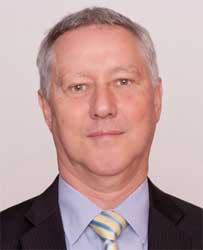
Top stories






More news






ESG & Sustainability
#Sona2026: President announces crisis committee to tackle SA's water challenges








John Marsden, National Sales Director of PPS, a financial services provider for graduate professionals, said South African graduates faced the same financial challenges associated with student debt as their UK counterparts, who are severely indebted.
"There are two main reasons for this: the high cost of education paired with poor management of finances as a result of a lack of financial education," Marsden said.
Some graduates stop paying the loan as they try to find employment.
"This is a big mistake because it can have a long-lasting effect on the graduate's credit score, which will haunt his financial future. It is important to understand that the debt will not vanish. It is better to arrange a repayment solution and not stop making payments completely," Marsden said.
Graduates who received loans from the state's National Student Financial Aid Scheme do not have to start repaying their debt until they are employed and earning more than R30,000 a year.
Interest on a student loan, currently 4%, begins to accrue the year after the student has graduated. This year the scheme made loans totalling R9bn; last year the figure was R8.5bn to about 400,000 students.
But the scheme has, for years, been struggling to recover money owed to it, with students repaying only about R400m a year.
Marsden suggests that graduates draw up a budget as soon as they graduate, including a payment schedule that would result in the loan being paid off within four years.
A PPS survey of about 5,000 graduate professionals this year revealed that 90% were worried about the rising cost of tertiary education.
"As the cost of education continues to rise, it is imperative that organisations work together to make higher education more accessible," said Marsden.
The Chief Executive of Higher Education SA, Jeffrey Mabelebele, said the organisation, which represents this country's universities, was asking the government to increase the amount of financial aid available to students.
Source: Sowetan via I-Net Bridge

For more than two decades, I-Net Bridge has been one of South Africa’s preferred electronic providers of innovative solutions, data of the highest calibre, reliable platforms and excellent supporting systems. Our products include workstations, web applications and data feeds packaged with in-depth news and powerful analytical tools empowering clients to make meaningful decisions.
We pride ourselves on our wide variety of in-house skills, encompassing multiple platforms and applications. These skills enable us to not only function as a first class facility, but also design, implement and support all our client needs at a level that confirms I-Net Bridge a leader in its field.
Go to: http://www.inet.co.za